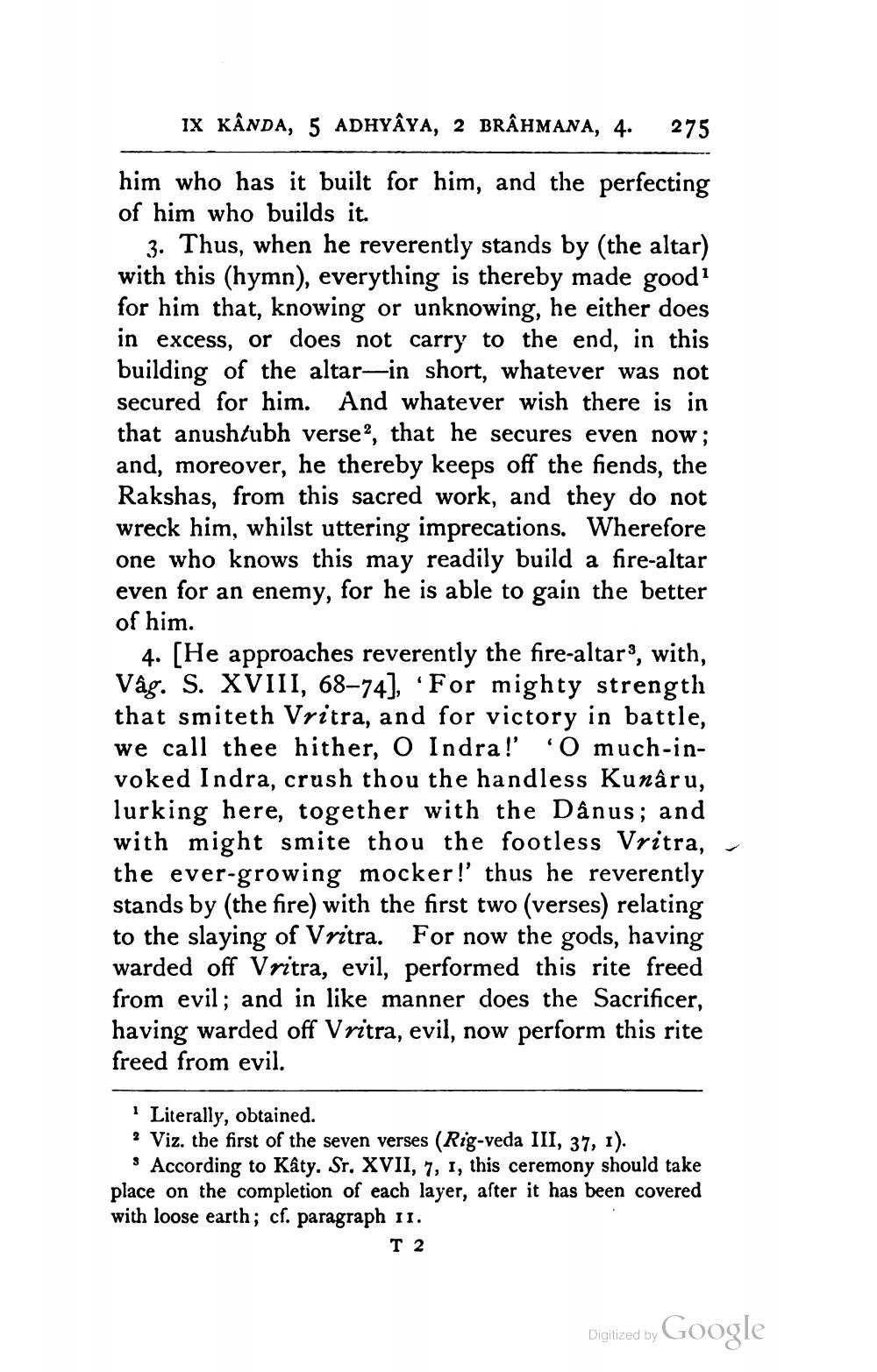________________
IX KÂNDA, 5 ADHYAYA, 2 BRÂHMANA, 4. 275 him who has it built for him, and the perfecting of him who builds it.
3. Thus, when he reverently stands by (the altar) with this (hymn), everything is thereby made good for him that, knowing or unknowing, he either does in excess, or does not carry to the end, in this building of the altar-in short, whatever was not secured for him. And whatever wish there is in that anushtubh verse”, that he secures even now; and, moreover, he thereby keeps off the fiends, the Rakshas, from this sacred work, and they do not wreck him, whilst uttering imprecations. Wherefore one who knows this may readily build a fire-altar even for an enemy, for he is able to gain the better of him.
4. (He approaches reverently the fire-altar", with, Vág. S. XVIII, 68-74), 'For mighty strength that smiteth Vritra, and for victory in battle, we call thee hither, O Indra!''O much-invoked Indra, crush thou the handless Kunâru, lurking here, together with the Dânus; and with might smite thou the footless Vritra, the ever-growing mocker!' thus he reverently stands by (the fire) with the first two (verses) relating to the slaying of Vritra. For now the gods, having warded off Vritra, evil, performed this rite freed from evil; and in like manner does the Sacrificer, having warded off Vritra, evil, now perform this rite freed from evil.
· Literally, obtained. ? Viz. the first of the seven verses (Rig-veda III, 37, 1).
According to Kâty. Sr. XVII, 7, 1, this ceremony should take place on the completion of each layer, after it has been covered with loose earth; cf. paragraph 11.
T 2
Digitized by Google




